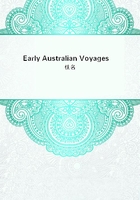
第35章
"The agents of the company shall not sail beyond the southernmost parts of Terra del Fuego, except through the Straits of Magellan, or round Terra del Fuego; nor go from thence to any part of the East Indies, nor return to Great Britain, or any port or place, unless through the said straits, or by Terra del Fuego: nor shall they trade in East India goods, or in any places within the limits granted to the united company of merchants of England trading to East India (such India goods excepted as shall be actually exported from Great Britain, and also such gold, silver, wrought plate, and other goods and commodities, which are the produce, growth, or manufactures of the West Indies, or continent of America): neither shall they send ships, or use them or any vessel, within the South Seas, from Terra del Fuego to the northernmost parts of America, above three hundred leagues to the westward of, and distant from the land of Chili, Peru, Mexico, California, or any other the lands or shores of Southern or Northern America, between Terra del Fuego and the northernmost part of America, on pain of the forfeiture of the ships and goods; one-third to the crown, and the other two-thirds to the East India Company."
But the reader will observe that I mentioned the East India and African Companies before; and that I now mention the South Sea Company, on a supposition that the two former may refuse it. In that case, I presume, the legislature will make the same distinction that the States of Holland did, and not suffer the private advantage of any particular company to stand in competition with the good of a whole people. It was upon this principle that I laid it down as a thing certain, that the African company would be allowed to settle the island of Madagascar, though it lies within the limits of the East India Company's charter, in case it should be found necessary for the better carrying on of this trade. It is upon the same principle I say this southern continent lies within the intention of the South Sea Company's charter, because, I presume, the intent of that charter was to grant them all the commerce in those seas, not occupied before by British subjects; for, if it were otherwise, what a condition should we be in as a maritime power? If a grant does not oblige a company to carry on a trade within the limits granted to that company, and is, at the same time, of force to preclude all the subjects of this nation from the right they before had to carry on a trade within those limits, such a law is plainly destructive to the nation's interest and to commerce in general. I therefore suppose, that, if the South Sea Company should think proper to revive their trade in the manner I propose, this proviso would be explained by Parliament to mean no more than excluding the South Sea Company from settling or trading in or to any place at present settled in or traded to by the East India Company: for, as this interpretation would secure the just rights of both companies, and, at the same time reconcile the laws for establishing them to the general interest of trade and the nation, there is the greatest reason to believe this to be the intention of the legislature. I have been obliged to insist fully upon this matter, because it is a point hitherto untouched, and a point of such high importance, that, unless it be understood according to my sense of the matter, there is an end of all hopes of extending our trade on this side, which is perhaps the only side on which there is the least probability that it ever can be extended; for, as to the north-west passage into the South Seas, that seems to be blocked up by the rights of another company; so that, according to the letter of our laws, each company is to have its rights, and the nation in general no right at all.
If, therefore, the settling of this part of Terra Australis should devolve on the South Sea Company, by way of equivalent for the loss of their Assiento contract, there is no sort of question but it might be as well performed by them as by any other, and the trade carried on without interfering with that which is at present carried on, either by the East India or African Companies. It would indeed, in this case, be absolutely necessary to settle Juan Fernandez, the settlement of which place, under the direction of that company, if they could, as very probably they might, fall into some share of the slave-trade from New Guinea, must prove wonderfully advantageous, considering the opportunity they would have of vending those slaves to the Spaniards in Chili and Peru. The settling of this island ought to be performed at once, and with a competent force, since, without doubt, the Spaniards would leave no means unattempted to dispossess them: yet, if a good fortification was once raised, the passes properly retrenched, and a garrison left there of between three and five hundred men, it would be simply impossible for the Spaniards to force them out of it before the arrival of another squadron from hence. Neither do I see any reason why, in the space of a very few years, the plantation of this island should not prove of as great consequence to the South Sea Company as that of Curacao to the Dutch West India Company, who raise no less than sixty thousand florins per annum for licensing ships to trade there.